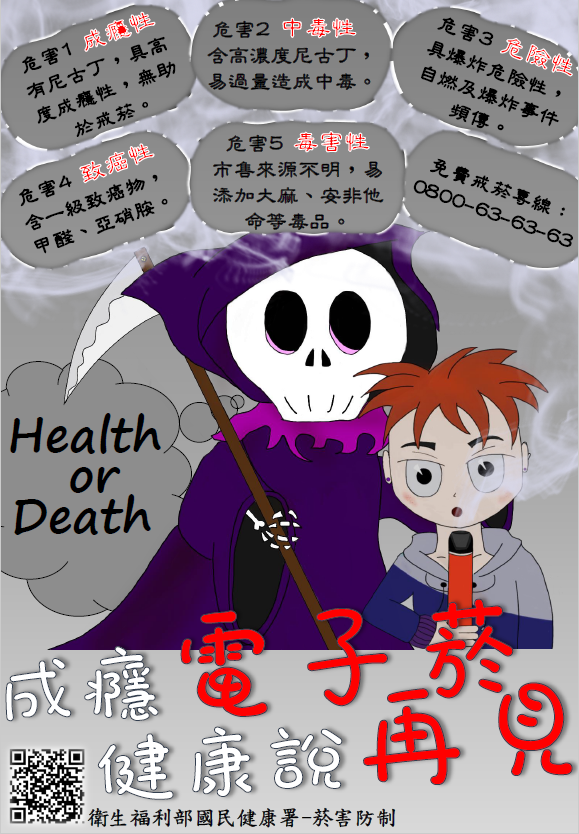The 2021 survey on youth smoking behavior by the Health Promotion Administration revealed that the e-cigarette usage rate among junior high students rose to 3.9%, and among high school students to 8.8%, with an estimated 79,000 teenagers using e-cigarettes, posing a serious health crisis. The revised Tobacco Hazards Prevention Act of 2023 fully bans e-cigarettes, with violators facing fines of up to NT$10,000. Authorities emphasize the "Three No Policy" (No trying, No buying, No recommending) to remind youth to stay within the law.
E-cigarettes pose a global public health challenge to youth health According to a 2024 WHO survey, approximately 25% of 15-year-olds in Europe, Central Asia, and Canada have smoked, 15% smoked in the last 30 days, and over 30% have used e-cigarettes, with 20% having used them in the last 30 days. This indicates that e-cigarettes have become a significant global public health issue.
The popularity of e-cigarettes is closely linked to marketing strategies by the tobacco industry, which attracts young people with various flavors and flashy designs, expanding the market and leading many youths to overlook the health risks. Therefore, WHO has called on countries to launch the "Stop the Lies" campaign, highlighting the harms of e-cigarettes and nicotine products on health, psychology, and the environment.
E-cigarettes contain nicotine, do not aid in quitting smoking, and are harmful to health The U.S. CDC points out that most e-cigarettes contain nicotine, which is addictive, affects the brain development of teenagers and fetuses, and contains carcinogens that can cause cancer. Flavorings such as diacetyl can also lead to severe lung disease. By 2019, the U.S. had reported 2,807 cases of e-cigarette-related lung injuries, with 68 deaths.
A study in South Korea showed that high school students using e-cigarettes were more than twice as likely to develop asthma as non-users, making e-cigarettes a significant risk factor for asthma. Additionally, WHO emphasizes that there is increasing evidence of the health risks associated with e-cigarettes, which do not aid in smoking cessation. E-cigarettes Contain Nicotine Leading to Addiction, Contain Carcinogens, and May Cause Cancer(Image / Source: Health Promotion Administration Website)
E-cigarettes Contain Nicotine Leading to Addiction, Contain Carcinogens, and May Cause Cancer(Image / Source: Health Promotion Administration Website)
Multiple smoking cessation resources help young people stay away from the harm of smoking
The National Health Department provides multiple smoking cessation services. Young people can receive services at more than 2,700 smoking cessation contract medical institutions across Taiwan, or call the free smoking cessation hotline "0800-636363" or use LINE (ID: @tsh0800636363) for consultation. Through confidential and convenient smoking cessation services, we help young people overcome withdrawal symptoms, successfully quit smoking addiction, and regain a healthy life.
Smoking cessation resources
- Free smoking cessation consultation hotline: 0800-63-63-63, LINE communication software (ID: @tsh0800636363)
- Contract smoking cessation agencies in various counties and cities (inquiry phone: 02-2351-0120, website)







